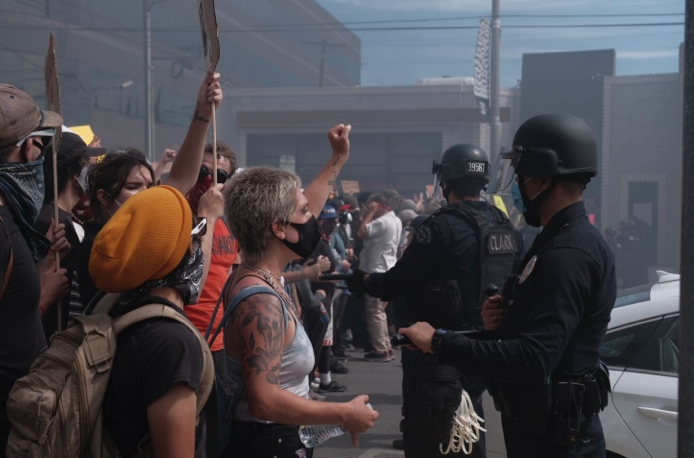CommentsGUEST COMMENTARY-The American “justice” system has always appalled me as being too often one of injustice and oppression, one of retribution and incarceration.
Our prisons teach people, disproportionately of color, how to be hardened criminals. And when they’ve done their time, they suffer a lifetime of discrimination which impacts their families and what level of success their children can expect to achieve.
And the use of capital punishment which is considered barbaric in the rest of the developed world is particularly abhorrent since the “state” routinely kills innocents including children and the mentally handicapped in cold blood. And, statistically, “state” murder of non-whites is vastly disproportionate to the population at large.
Our juvenile injustice system has created a schools-to-prison pipeline ensuring lots of money is spent on jails and prison guards and prison health services.
Our elected public attorneys are interested only in stats, not justice, and insist people plead guilty even when they are not because the poor cannot afford a good defense and are left with a lifetime stigma. While these public attorneys get re-elected.
Bail requirements mean that innocent people lose their jobs, their homes, and their families without due process. New Jersey and Washington, DC – both with a high percentage of Blacks -- eliminated money bail in 2014, reducing pretrial detention, ensuring the innocent are not deprived of their livelihoods and saving millions in pretrial incarceration costs.
Such reforms are fiscally responsible as well as ethically essential.
White teens who use and whose use drives the demand for street drugs get a slap on the wrist while teens of color get prison sentences that lead to a lifetime of crime and despair.
Face-recognition technology has repeatedly been shown to disproportionately misidentify people of color. According to a National Institute of Science and Technology study, Black and Asian people were up to 100 times more likely to be misidentified than white men.
Twenty-eight members of Congress were identified as criminals; 40 percent of these were Black or Hispanic when only 20 percent of Congress are people of color.
The U.S. spends well over $100 billion a year on policing and probably another $100 billion on incarceration. Today, prisons are pandemic hotspots.
During the Black Lives Matter protests (not riots) in the wake of George Floyd’s murder (not death), protesters (not agents of antifa) wore masks while the militarized police and National Guard (not beleaguered local cops) who did not, tear-gassed them and threw them in paddy wagons together.
That these protests did not create a spike in COVID-19 cases, as has been documented by epidemiologists since then, is thanks entirely to the protesters – black, white, brown, yellow, and red who acted responsibly. Otherwise, it would have been just one more sad example of murder by cop.
The talking heads decried crimes committed by protesters, but the most insidious crimes were those committed by police against the people they were sworn to protect – tear gas, rubber bullets, slashed tires. Where is the justice?
Under the 1925 Geneva Protocol, tear gas was classified as a chemical weapon and its use in war was banned. So how could 98 American cities use it against their own citizens?
A majority of break-ins appeared to target opioids. But that doesn’t play as well on the 6 o’clock news as people running out of stores with Adidas.
Agreed, this doesn’t forgive the arsonists and looters, but it underlines that we have a problem here. One that won’t go away until we change, not the people, not the budget, but the entire system and its racist underpinnings.
We need out-of-the box approaches.
We need a truly progressive tax system where those who have the most (companies and people) and have benefited the most, put the most back into the system.
We need cities and a country, governments and police forces that exist to protect and serve all Americans, not oppress the many to serve the few. Starting with solutions that demand care, not the boot.
Replacing policing crackdowns with services uplifts will cost a lot more money in the short term but it’s our taxes, our money, and it will create major savings, both social and economic, in the long run.
(Liz Amsden is an activist from Northeast Los Angeles with opinions on much of what goes on in our lives. She also writes on behalf of the Budget Advocates’ mission regarding the City’s budget and services. In her real life she works on budgets, for film and television, where fiction can rarely be as strange as the truth of living in today’s world.) Photo: Chava Sanchez/LAist. Prepped for CityWatch by Linda Abrams.















